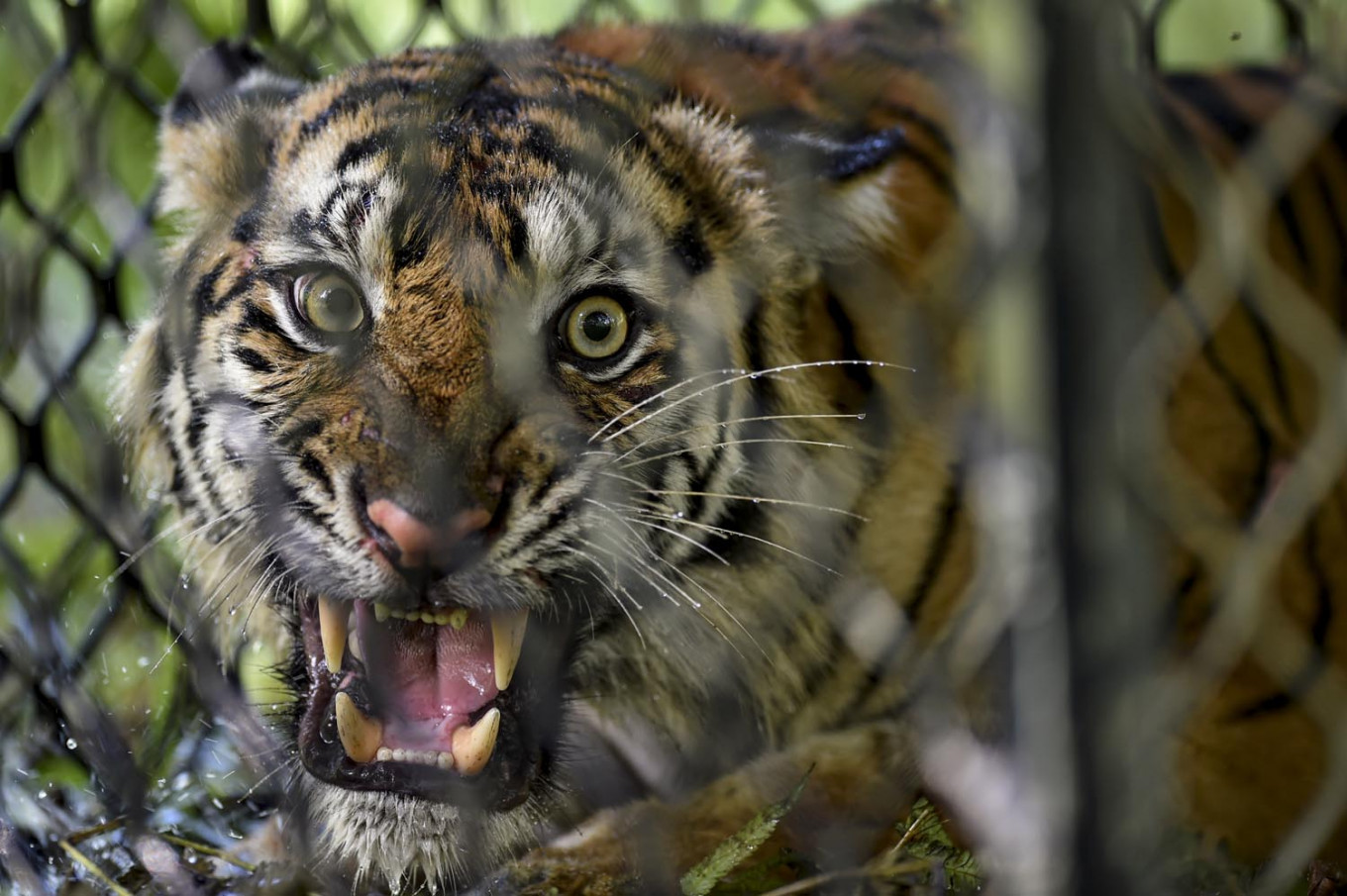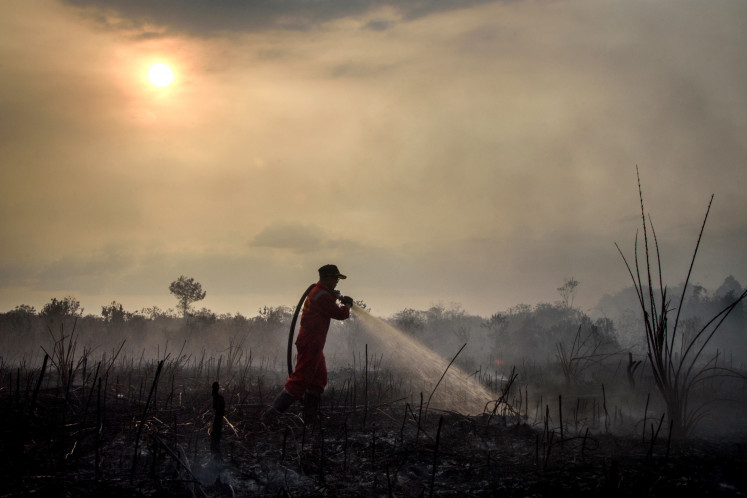Popular Reads
Top Results
Can't find what you're looking for?
View all search resultsPopular Reads
Top Results
Can't find what you're looking for?
View all search resultsVeterinarian injured when trying to free Sumatran tiger from trap
A veterinarian was bitten and clawed by a Sumatran tiger he was trying to free from a pig trap in South Tapanuli, North Sumatra.
Change text size
Gift Premium Articles
to Anyone
A
veterinarian with the local Natural Resources Conservation Agency (BKSDA) was bitten and clawed by a Sumatran tiger he was trying to free from a pig trap in South Tapanuli, North Sumatra, on Sunday.
Anhar Lubis had to be treated at Metta Medika Hospital in Padang Sidempuan city, after getting injured in a village in Angkola Sangkunur district. He suffered from scratches and lacerations on his left arm and leg.
Local BKSDA chief Gunawan Alza said the tiger was a female about 3-4 years old. The tiger had been trapped in a plantation area in Aek Pardomuan hamlet since Thursday, but local people were afraid to free it themselves.
“The tiger had been shot with sedatives when Anhar tried to free it. But the tiger made a sudden move and attacked him. The tiger ran into the woods after the attack,” Gunawan said.
The BKSDA have set up traps to catch the tiger to rehabilitate it and treat its injuries.
Batang Toru Police chief Adj. Sr. Comr. Tona called the residents to stay away from the area for the next few days.
“We’re calling people to not do any activities in the area since the tiger is still roaming around,” he said.
The Sumatran tiger is a subspecies of tiger native to the island of Sumatra. The species has been classified as critically endangered since 2008 by the International Union for the Conservation of Nature (IUCN).
Illegal hunting, including the use of snares to trap the tigers, along with the loss of the tigers’ natural habitat are among the primary drivers that have brought down the Sumatran tiger population.
In 2016, the North Sumatra provincial BKSDA collaborated with Environment and Forestry Ministry and local non-profit Parsamuhan Bodhicitta Mandala Medan (YPBMM) to establish the Barumun Tiger Sanctuary.
The sanctuary is home to eight Sumatran tigers who are currently being treated and rehabilitated.
In February, the sanctuary welcomed three Sumatran tiger cubs born from parents previously rescued after being caught in traps. The cubs are thought to have been born in late January after keepers at the sanctuary reported observing the cubs through CCTV monitoring.











